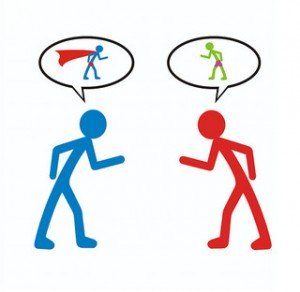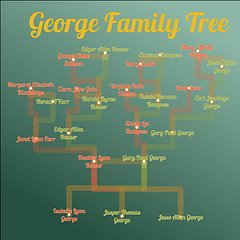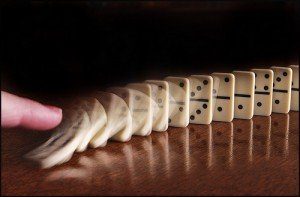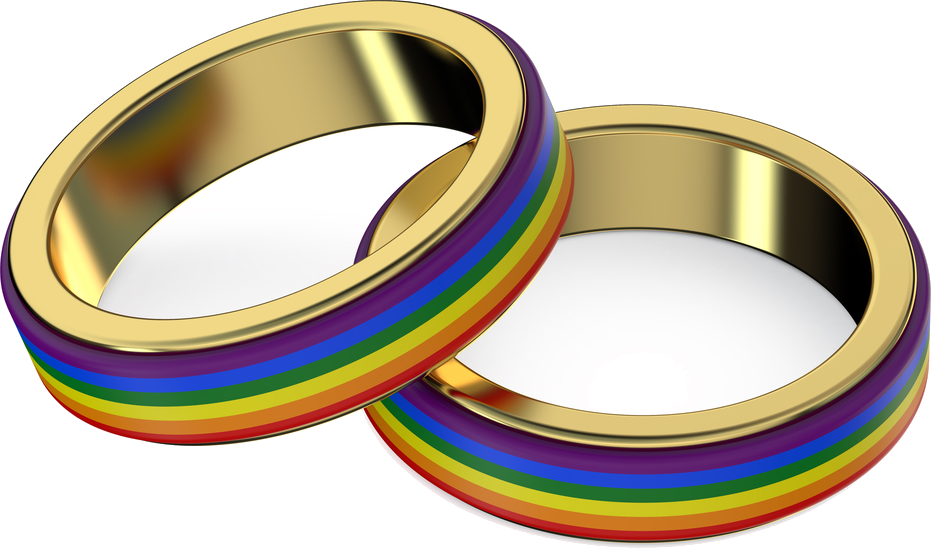Contents
- 1 Circular Questioning in Systemic Counselling
- 1.1 Connections made within a Relationship.
- 1.2 Example Questions: Individual versus Relationship.
- 1.3 Relationship Counselling: “Information is a Difference”.
- 1.4 Examples of Circular-style questions.
- 1.5
- 1.6 The Purpose of Circular Questioning.
- 1.7 Counselling Services using Circular Questioning
- 1.8 Havant Counselling
The couple’s (or group’s) relationship is the client, rather than there being a number of individuals within the couple or group.
Yet, whilst offering therapeutic interventions (questions intended to provoke thought or challenge) to an individual is often straightforward (“how do you feel about that?”), such open – or linear – questions are employed to focus on the individual. They do not focus on the relationship.
A counsellor trained in individual counselling, putting open/linear questions to a couple, will fail to adequately address interaction and problems occurring within the clients’ relationship.
The purpose of this article is to address the question: if open/linear questions are not suitable to address a relationship in counselling, how does a Systemic Couple Counsellor ask questions of the couple’s (or group’s) relationship?
See also: How a Couple Counsellor Thinks (Article: Systemic Thinking in LGBT Couple Counselling).
Connections made within a Relationship.
When working with a couple (or a family) using a systemic model of therapy, systemic therapists operate with the hypothesis that each member of the family is connected with everyone else in the relationship “system”.
Thus, Person A‘s behaviour affects Person B. In turn, Person B‘s response to the A‘s affect can go on to affect others in the system (Person C, Person D, and perhaps even affect Person A back).
This process is known as a Circular Effect and is distinct from a linear or a casual effect.
The original Milan Associates, who developed systemic model in the field of family therapy, proposed that for a relationship to exist between people there has to be differences between the individuals in that relationship.
Differences – not similarities.
In order to assist a couple in couple counselling the couple counsellors helps the couple to learn what differences exist in their relationship. Differences provide the couple and the counsellor with information about the relationship and the connections and distinctions within it.
To learn about a relationship’s differences, and how the relationship ‘system’ works, we need a form of questioning that allows us to focus on the relationship, i.e. on the whole system rather than the individuals that make up the relationship.
Example of a Couple System.
- Person “A” acts out behaviour “z”.
- Person “B” responds with behaviour “y”.
- “A” misunderstands “y” and thinks he has just experienced behaviour “x”. He already has a response for “x” which is behaviour “w”.
- B is hurt – she has just seen behaviour “w” in response to her behaviour “y”, and she think’s that response was inappropriate and unconnected with her behaviour! She retaliates with behaviour “v”.
- A is now aghast at seeing his partner behave with “v” and gets out his usual response“u”.
…and so on.
Are you seeing that this system is escalating into conflict (such as heading towards an argument)?
Circular Questioning allows us to question the relationship.
Initially, the therapist models the process of asking about differences (in addition to other systemic methods such as hypothesising, creative thinking, paradoxical thinking & perturbation), and by doing so invites the couple to take up this process.
Circular questions are unfamiliar to a lot of us, even to counsellors trained in individual counselling, and a couple being asked a circular question may initially struggle with figuring out how to answer the question. The skills of the counsellor assist the couple in finding out how they would answer the question (rather than the counsellor answering it himself).
Example Questions: Individual versus Relationship.
If the systemic couple counsellor’s role is to perturb (or “unbalance”) the couple’s relationship behaviour, to assist them in discovering their response cycles, to inquire about what the system is meant to be achieving, to support the couple figuring out where the system could be altered, and to learn to watch out for triggers that they can choose to alter in situ, etc, then we need a whole series of circular questions each that address different aspects of a relationship system.
“How do you become depressed?”
When working in individual counselling, we ask questions of the individual.
This is an open question.
“When A is depressed, what does B do in response to this?”
When working with a couple, we are focussed on the relationship.
This is a circular question.
- Person B joins in with A’s depression, or
- Person B may do something to avoid A’s depression, or
- something else;
… we will learn about the system between Person A and B when depression occurs.
Relationship Counselling: “Information is a Difference”.
Selvini et al (1980) put forth systems ideas from Gregory Bateson (1972) – originally from computer systems theories – and reframed the concepts of computer systems into human family systems: we try to gain information because “information is difference”, and “difference is a relationship” (cited by Julia Houston, Sarah Galloway, 2008, Google Books).
In systemic couple counselling, we are attempting to out draw out information from the relationship (the “system”) so that the couple can learn new things about what is happening.
As responses to circular questions can be used by the counsellor to form further circular question, lots of new things (new differences) can be learned about the system.
For example: when addressing a couple who believe that they are unable to stop arguing, one approach I may take is to open with:-
My initial purpose is to begin perturbing the couple’s firmly held concept (“we cannot stop arguing”) by giving the couple something new to think about. I am inviting the couple to learn something new about their system – and it is likely that this is the first time a couple have been asked a question like this. Plenty of conversation can ensure from this and I usually find that a number of common responses (any of which can be responded with further circular-type enquiries) begin:-
|
| Therapist’s response may be: “…and when he/she notices this, what do they do?” (and later) “…and what is your response to that behaviour?” |
|
| Therapist’s response may be: “…that’s interesting isn’t it? You’re disagreeing on who is noticing the argument beginning” (soliciting further discussion). |
|
| Therapist’s response may be: “…well that’s curious, isn’t it? What do you make of that?” (soliciting further discussion from the couple). |
Examples of Circular-style questions.
Circular questioning styles that try to bring out differences include:-
- Across Time: “How might this problem change in the near future … medium future … long term future?“
- Between People: “Who, between the two of you, most believes that John (the husband) is mostly responsible for these arguments?“
- Aspects of a person: “When you are unhappy with what’s happening in this relationship, which part is more likely to take over: your rational side, or your emotional side?“
- Between Situations: “Is this relationship happier at home …or on holiday …or elsewhere?”
The Purpose of Circular Questioning.
The purpose of systemic couple therapy is to invite the couple to learn of the connections between their behaviour.
Asking about how the relationship system currently operates, how it operated in the past, and how it might operate in the future) gives us information about differences.
From this information the couple learns how their relationship system really works – challenging their belief about how they think it works – thus giving them more options for change.
It can give the couple-who-is-waiting-for-their-partner-to-change something to think about their own part in the relationship… that both partners are involved in relationship-conflicts (the approach can challenge the position of “it’s all his/her fault”). When we’re given the power to change ourselves we’re more likely to make a change than to be waiting for our partner to change on our behalf.
Circular questioning is at the core of systemic therapy and the systemic approach can be used within different therapeutic approaches (psychodynamic, CBT, Gestalt etc).
Portions referenced from “Circular Questioning: An Introductory Guide” A.N.Z.J. Family Therapy. 1997, Vol. 18, No. 2, pp 109-114
Counselling Services using Circular Questioning
Havant Counselling

Counsellor Dean Richardson MNCS(Accredited Registrant)
Private Counsellor / Couple & Group Therapist
Dean Richardson is the counsellor asking the questions that no-one else is asking, assisting people in transforming confusion & stress into understanding & relief. We all get stuck in our lives & relationships, and we all have secrets that we'd rather the world didn't know, so Dean's approach is confidential, challenging but also kind, working together towards a place where you'll have no further need of counselling. Dean has been practising counselling since 1999 and business coaching since 1997. His private practice focuses upon providing effective therapies based on psychodynamic, systemic, cognitive behavioural and group analytic approaches for couples, individuals and small support groups. Dean also has a special interest in focussing on LGBT counselling (couples, individuals, polyamorous groups etc).







Trackbacks/Pingbacks